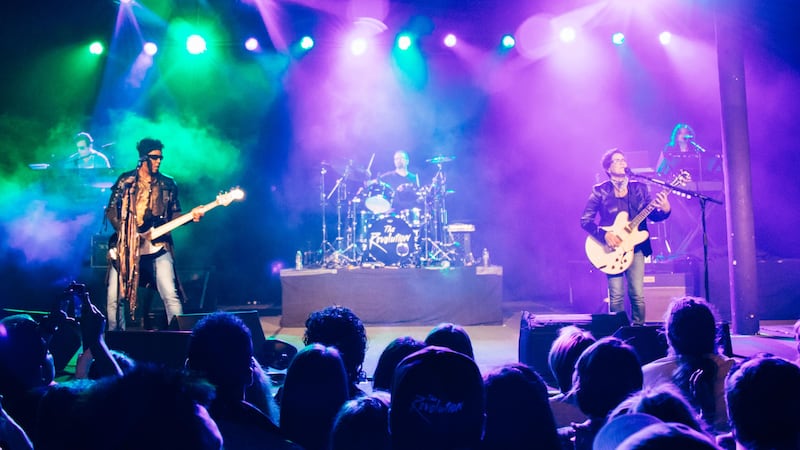In the year since Prince's death, many questions have been raised over the handling of his posthumous legacy, and ultimately, it always comes back to, "What would Prince think?" What would he think about literally having his vault raided? How would the guy who fought vigorously to keep his music off streaming services feel about having his entire discography made available on Spotify? And what do you think his reaction would be if he knew his old band was touring the country, playing his songs without him?
Of course, there's no way of knowing if Prince is somewhere shooting his famously GIFable side-eye at all this. But watching the Revolution perform at Roseland Theater on Friday night, it was a hard notion to shrug off. Certainly, it's something they've thought about, too.
"I don't know if he'd approve of what we're doing," drummer Bobby Z told me a few weeks ago, "but he'd approve of what we're doing onstage."
That is to say, when paying tribute a notorious perfectionist, the main responsibility, first and foremost, is to get the songs right. To that end, if Prince is spending his afterlife keeping a suspicious eye on his former bandmates, he'd likely nod approvingly. Arriving to a familiar introduction—"Ladies and gentlemen, the Revolution"—the band locked into "Computer Blue," and from the first electronic snare thwack, it was like the '80s never ended in Minneapolis. Focusing primarily on the funk workouts of the pre-Sign o' the Times era, the group was unerringly taut, sweating through the likes of "Let's Work" and "DMSR" with lean precision. Guitarist Wendy Melvoin, in particular, was a joy to behold, both as a flame-throwing soloist and an impossibly tight rhythm player.
Sonically, it was perfect—well, mostly. "Erotic City" dragged a step behind the studio version's carnal groove, and "Our Destiny/Roadhouse Garden," a rarity recently unearthed for the expanded edition of Purple Rain, felt like the only song that hadn't been pounded into their muscle memory. Bassist Mark "Brown Mark" Brown seemed to miss a cue at the end of "Let's Work," a mistake that would've got him docked his per diem back in the day, and guest Fred Armisen's half-hearted tambourine playing on "Baby I'm a Star" probably would've gotten him Kim Kardashian'd off the stage. But those were minor quibbles. If you came to see, in essence, the world's greatest Prince tribute act, that's exactly what you got.
And yet, the show couldn't help but feel like a musical uncanny valley—so close to the real thing, yet jarringly not. Melvoin, Brown and Stokely Williams, of Minneapolis R&B veterans Mint Condition, took turns at the microphone, filling in as well as they could, but it only served to accentuate the gaping hole at center stage. Obviously, that was always going to be an issue with taking this reunion beyond the initial three-night stand at First Avenue, but the void was even bigger than anticipated, precisely because the band sounded better than many might've guessed.
For that reason, the most resonant moments occurred when the band decided to acknowledge their leader's absence rather than play through it. There was "Purple Rain," of course, but there was also "Paisley Park," which Melvoin described as a "smoke signal" sent up to the heavens. "Sometimes It Snows in April," performed in a hush, with only Melvoin and keyboardist Lisa Coleman onstage, was the show's emotional highpoint, so wrenching in its delicacy it absolutely had to be followed by the eruptive ecstasy of "Let's Go Crazy." It was the night's most cathartic pairing, and a justification for the Revolution going on the road even if it ultimately meant making the world miss Prince even more—so that we could all gather, as fans and peers alike, and try to get through this thing together.
All photos by Henry Cromett.
0 of 12












